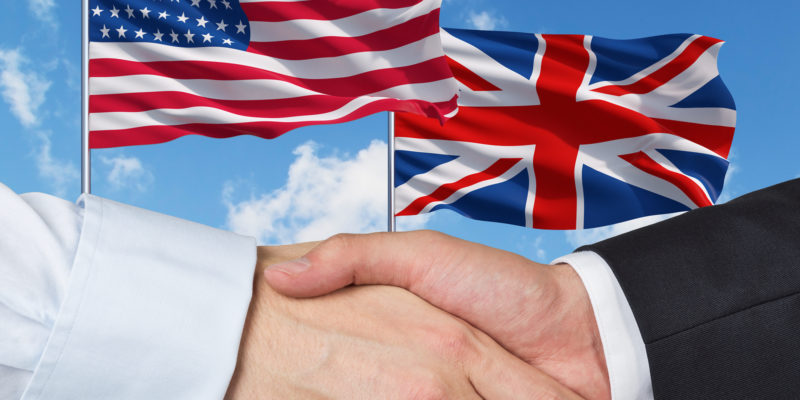Although much of the focus in the UK is currently on our ties to the EU, the government has been working to ensure that there are systems and agreements in place with other nations to mitigate anything that might arise as a result of Brexit.
One recent announcement that those in the pharmaceutical sector will be pleased about is the agreement between the UK and USA to continue with their mutual recognition agreement (MRA).
Signing a new MRA is an important step, because it means all relevant aspects of the current EU-US MRA (which the UK is currently covered by) will remain in place once the UK exits the EU.
Pharmaceutical products account for approximately £7.7 billion of the UK’s exports to the US, making it one of the industries to benefit the most from this new MRA. The government also pointed out that similar agreements have also been signed with Australia and New Zealand.
Liam Fox, international trade secretary, commented: “Our top priority is ensuring continuity for businesses as we leave the European Union and we are signing other agreements in the days and weeks ahead.”
Dr Richard Torbett, executive director of commercial policy: UK and international at The Association of the British Pharmaceutical Industry, welcomed the MRA, commenting that it was “streamlining regulatory processes” between the two countries.
However, it hasn’t all been good news for the UK’s pharmaceutical sector, with the Independent recently reporting on comments made by CEO of Ipsen David Meek, who has stated that the EU, US and China will all get access to new medicines ahead of the UK.
This is because the UK will no longer be covered by the European Medicines Agency (EMA), and pharmaceutical firms will prioritise this regulator, along with the regulators in the US and China, when seeking approval for new drugs to bring to market.
If you’re looking for pharmaceutical repackaging companies, contact us today.

